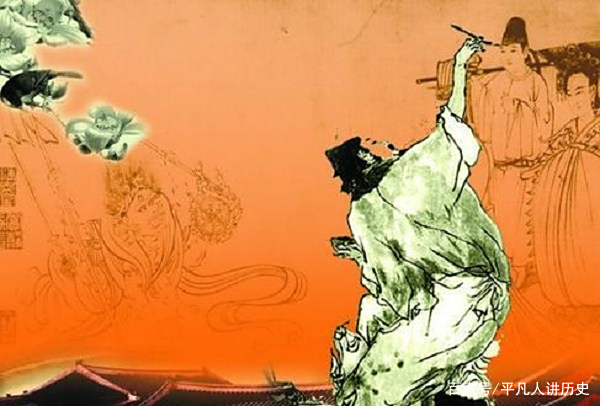For those who are interested in ancient women’s widowhood, the History Encyclopedia editor brings detailed articles for your reference. How did ancient women maintain their livelihoods after being widowed and unable to remarry?
Introduction: The feudal period was an era of cannibalism and strong family prejudices. It was precisely because of the pursuit of male dominated ideology that the preference for sons over daughters became the mainstream ideology. However, not every dynasty had a very low status for women. For example, during the Tang Dynasty, under the influence of Empress Wu Zetian, the rapid development of the Tang economy also accelerated the integration of ethnic groups, thus improving the status of women.
In the Tang Dynasty, women were able to dominate, but during the feudal period of more than two thousand years, the status of women was very low for most of the time. So how did widows who could not remarry in ancient times control their desires? There is a very effective method.
In order to reduce the presence of women and make them completely submit to male power, men who hold the initiative in society try their best to restrict women’s development. They do not allow women to go to school for education, let women be self-sufficient, and can only teach their husbands and children at home. They even start to rule women ideologically, requiring them to learn the Three Obediences and Four Virtues, and instilling a strong sense of chastity. They do not allow them to remarry after their husbands die.
Due to frequent dynastic changes and wars between ethnic groups in ancient times, widows were also very common. Men can have three wives and four concubines, but they demand that women remain faithful to them. Even if women are very dissatisfied with this phenomenon, they cannot change everything and can only choose to accept it passively.
In the Song Dynasty, there was a famous female poet who chose to remarry after the death of her first husband. However, despite having gained fame and social status, she still became the target of countless literary criticism. She was Li Qingzhao.
Because Li Qingzhao has received education and new ideas, she can resist criticism from literati, but it does not mean that all women can face others’ insults and accusations calmly when faced with situations like Li Qingzhao’s. Since the Song Dynasty, it has been proposed that women are not allowed to remarry after their husbands pass away, and they must maintain chastity for their husbands. The person who proposed this viewpoint was Zhu Xi, who advocated the concept of upholding heavenly principles and eliminating human desires.
Zhu Xi stood at the moral high ground, thinking entirely from a male perspective, which directly restricted the development of women. Moreover, during the Song Dynasty, the phenomenon of women wrapping their feet appeared. As a result, the status of women gradually declined over time, until the feudal period became a thing of the past and feminist thought was awakened.
Since Zhu Xi put forward the idea of preserving justice and eliminating human desires, the court of the Song Dynasty also gave her a chastity memorial archway in order to praise the widow who continued to be observant after her husband’s death. At the same time, the widow will also be praised by her neighbors, so in this case, it also virtually killed women’s desire, so that women can only die alone after widowhood.
If this woman is old and has lost her husband, it’s okay. But if she is young and has lost her husband, how should she restrain her desires? In fact, the term ‘desire’ has no inherent impurities, because it is normal for people to have desires. However, in the mouths of some great scholars, they stand at the highest point of morality and demand the extinction of desires, which is actually not suitable for the development of human nature.
After the death of their husbands, young women are also forced to maintain their chastity, and in this situation, they need to complete the responsibility of supporting their families alone. If they have children, they still have to raise them independently, so they are required to have the ability to survive.
In ancient times, women had already learned about needlework before leaving the court, so in this situation, they could barely survive by relying on their own skills and support themselves and their families. Long term labor has also made her body very tired, so naturally all desires have been dispelled. As the saying goes, if she cannot even achieve basic needs, how can she talk about desires?
Actually, this is very unfair to widowed women. Whose life is not life? Why can so-called literati who stand on the moral high ground point fingers at others’ lives, and even easily negate everything about others? All of this can only be attributed to the unique feudal system of favoring sons over daughters and the strong prejudice of social status.
Conclusion: Fortunately, we have entered a new era where women have more opportunities for development and can independently choose the life they want. In today’s society, men and women are equal, and everyone can make achievements in their careers and contribute to their families together.
In the past, women got married in search of a long-term meal ticket, because only by relying on men and power can women survive in this biased society. Nowadays, society is very friendly to women, so women’s views on marriage have also changed.

